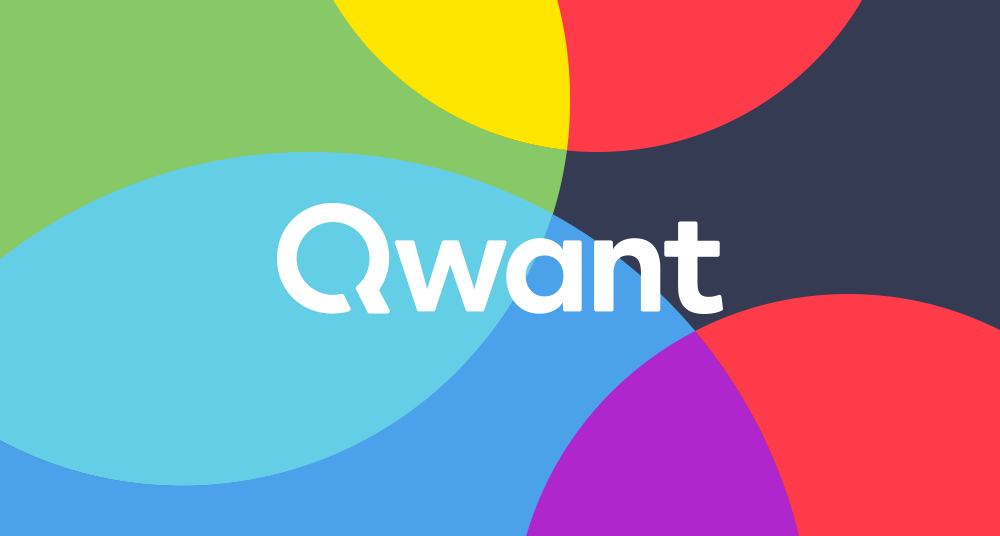Privacy or Convenience?
Article By : David Benjamin

There's a famous tale from a long time ago of a little guy beating a giant. Now tiny Qwant is taking on Google.
“… we don’t put any cookie on your browser… We don’t use any tracking device… We don’t collect and we don’t store any history or your searches…your query is instantly anonymized by being dissociated from your IP address… what you are doing with Qwant is part of your privacy and we don’t want to know.…” — Team Qwant pledge, updated 23 Feb. ‘17
For a quick measure of how Google has changed the art of research, take another look at War Games, the John Badham film that has become an Atomic Age classic. In his quest to find out who devised a war-game program into which he inadvertently hacked, teenage protagonist David Lightman haunts his local library. He plumbs the Dewey Decimal System, scours the library’s microfilm archive, and rummages through volume after volume of the Reader’s Guide to Periodical Literature—once the Bible of researchers, journalists and academics from fifth-graders to Ph.D. candidates.
But forget all that. Now, you can find all that stuff with a few clicks on Google. I used Google to research the above.
According to Eric Leandri, that’s just the problem. Leandri is one of the founders of Qwant, a French-based search-engine company that competes David-like against the Google Goliath. Leandri is also president of the European Open Internet Project, an organization nominally committed to breaking the near-monopoly of Google in Europe and beyond.
“Google is no longer a search engine,” said Leandri, in an interview at this year’s Mobile World Congress in Barcelona. “Google is a universe.”
Indeed, French articles commonly refer to Google as “le géant américain.” A few numbers underscore this charge of giantism. As of October last year, Google commanded 77 percent of the world’s global search-engine (SE) market. But this is skewed by the Chinese market, where Baidu is a virtually a state-sponsored entity, allowing it to claim more than 14 percent of the world stage. Eliminate Baidu, and Google exceeds 90 percent worldwide.
Le Géant Américain
Even as the European Union and European Investment Bank battle the dominance of “le géant américain,” Leandri noted that Google holds a steady 95-percent share there. No Europe-wide search-engine competitor, not DuckDuckGo, Ecosia or Qwant, has cracked more than one percent.
Leandri notes with pride the French government’s decision in 2018 to direct all its official searches through Qwant. But Qwant’s piece of the French action is still only six percent. Leandri characterized Qwant’s two-percent share in Germany as a great leap forward.
The problem of competition materializes in microcosm in the testimony of Louis-Georges Dampoux, a 13-year-old who lives in suburban Paris. Because of Ecosia’s commitment to social consciousness, Louis-Georges took the extra effort needed to make it his default SE.
By email, he told me, “What I like about Ecosia is their project. It consists in planting trees with the money that Ecosia makes with your researches on the Internet. I think that’s great with all the global warming issues and tree cutting… in today’s world.”
But he also said that his teachers seem unaware of alternate search options and that Google is the top choice offered at his school.
The EU has for years waged legal battles against Microsoft for its operating-system domination, against Facebook for its dominion in social media and against Google for its virtual SE monopoly. But there is no parallel movement against digital domination in the United States, where all the giants were born.
Teddy Wouldn't Bear This
There’s some irony here. America is the birthplace of anti-trust regulation. Trust-busters like Teddy Roosevelt did not exactly impoverish robber barons like Cornelius Vanderbilt and John D. Rockefeller, but they forced them into retreat and inspired a host of anti-trust laws and agencies.
The digital robber barons of today’s Gilded Age, from Sergey Brin and Bill Gates to Jeff Bezos and Mark Zuckerberg, face no such opposition. They absorb or overwhelm competitors at will and suffer no interference from federal regulators who seem to barely know the difference between an algorithm and an alligator.

Qwant founder Eric Leandri
The elephant in this dilemma that most distinguishes the EU from the USA is the issue of data privacy. While European watchdogs dwell on shielding individuals’ vital information from intrusion by states and corporations, there seems little such concern across the Atlantic, where Google and Facebook serve as a de facto Big Brother. Americans seem to want to share everything, from their latitude and longitude every second of the day to a photo album of the sandwich they’re having for lunch, to a narrative of lunch’s eventual fate in the formerly private lavatory.
The European Union’s movement to curb America’s digital monopolies seeks to keep private the lives of millions who depend on the Web for research, amusement, communication or just a little bit of human contact.
Qwant, whose funding includes a €25 million infusion from the European Investment Bank, has issued a manifesto promising users that it conforms strictly to French privacy laws requiring the “right to be forgotten,” plus rights to access, oppose, rectify or suppress faulty information. Qwant also purges most retained personal data after seven days.
"Private is Private"
Leandri turns emotional on the issue of protecting users’ personal data. “Public is public, private is private.” While search engines like Google and platforms like Facebook accumulate and store personal information to create user profiles serve to target—or “microtarget”—each user for advertising purposes, Qwant eschews this practice.
“They want to simplify the world to just what you like,” said Leandri. “While Google gets bigger, its users get smaller.”
The goal of Qwant, he said, is to “give people search results based on you as a public user… to show what the world is right now.”
He added, “In Europe, you are a citizen. In America, you are a consumer. It’s an entirely different game.”
Right now, of course, notwithstanding the EU’s legal efforts and despite the competition mounted by Qwant, Ecosia and others, Google is winning the game, by six or seven touchdowns.
Europe doesn’t even do touchdowns.